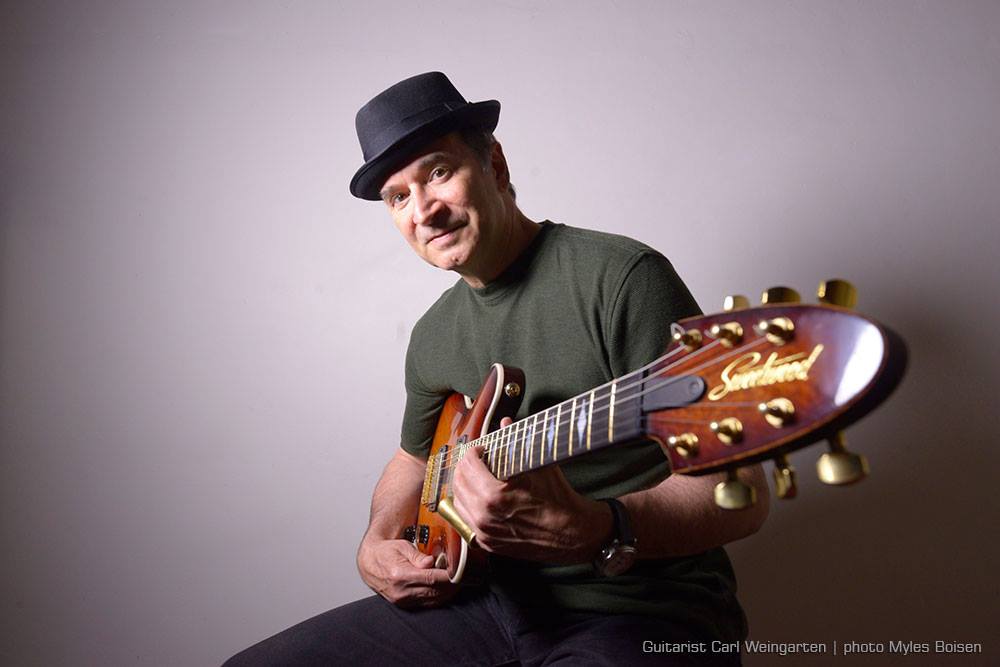Solo Work is Cathartic but Ensemble is Enriching–Interview With Carl Weingarten
Being a successful Indie artist was never an easy task, and that bar hasn’t been lowered anywhere in the recent past. Though technology has opened new vistas and opportunities for artists sitting in the remotest corners of the worlds, yet making a living off your music demands as much hard work as it used to be.
There is no denying, however, that if an artist works with persistence and puts in efforts to make sure all the right kinds of tools are used and strategies followed, there is every chance of being successful in reaching out to the audience and making your music work.
We talked to Carl Weingarten, who is hailed as one of the best Indie artists on the scene about his journey and how he feels about the changing situations for independent musicians.
Q1. Over the years, what have you found as the most essential trait of a successful Indie artist?
You have to love what you do because that’s what keeps you going. There’s also work ethic. Boring yes, but no one in the arts is successful without putting in the hours. Knowing how to play an instrument, or sing well, are skills anyone can learn, but you’re not an artist until you either create new material, or become a regular performer. All the successful working artists I know got that way with a passion for music and dedication to their craft.
Q2. Does working with other artists help you in enriching your repertoire?
Collaboration is everything to me. I learned much of what I know about making music by working with artists above my pay grade. I’ve produced many a session where the artist, realizing it or not, was giving me a master class. Solo work is cathartic, but ensemble work is, as you said, enriching.
Q3. You played with the bands; as a session artist, and also as a solo performer. Which one helped you more in terms of reaching out to a wider audience?
I’ve been a recording artist more than I’ve done anything else, so if I have an audience, it’s through the albums I’ve made. I just prefer the studio setting and working at my own pace. It’s the whole documenting aspect that’s most satisfying to me. I enjoy the act of making a recording, and once it’s finished and released, letting it have its own life. If I’m lucky, the recording gets a welcome release and people who like my music get to hear it. If not, the music just becomes part of the catalog. Lately, I’ve been blessed with some of my early music circling back around. Two recordings I did back in the 1980s, Dreaming In Colors and Living In The Distant Present are getting a second life. Both have been reissued by European labels – Emotional Rescue and Azure Vista Records. So they get a second life.
Q4. Do you feel any style or genre can find the right size of the audience in today’s world?
Absolutely. When I saw “Glitch” listed as a music genre, all bets were off. Who’d have thought, there would be a form of music based on a digital error? Crazy, but why not? That’s where technology has brought us, and where the internet has enabled even fans and artists in the most remote locations to find each other and create a scene.
Q5. What are the best marketing strategies for independent musicians in the contemporary music scene?
It’s difficult to answer that with how fast things are changing. Every artist has to decide what works best for them, and that takes some time to figure out. Marketing depends largely on the style of music the artist is doing. The music biz is saturated now, and most of the marketing tools available in social media, the internet, digital distribution, etc. are all available to millions of other artists as well. So one has to keep in mind, they are only tools. They are not the strategy. Whatever the approach, it should be a mix of strategies. As your audience grows, your strategy develops with that audience. Think of marketing as a creative extension of your music, not as a separate thing. I can’t stress enough to learn as much about how the music business works, so when opportunities arrive, you’ll be ready to embrace them on your own terms and not someone else’s.
Q6. Any message for our readers?
Feed your music with an enriched life. Be with good people who support what you’re doing, and show them your gratitude. Feedback and criticism are learning experiences. By listening, you either learn something new about your music, or how little the other person knows about music. Trust your instincts. Waste not a minute with naysayers, perpetual failers, discontents or stay in any relationship unless those people wish the best for you. Soak up as much other music and art as you can. Every expression has something for you to experience. And do more than just music. Find one or more creative passions that you enjoy (re: painting, writing, travel, cooking, photography, acting, dance, teaching, reading) and do those without expectation of reward beyond your personal satisfaction. The knowledge you gain will find its way back into your music.
